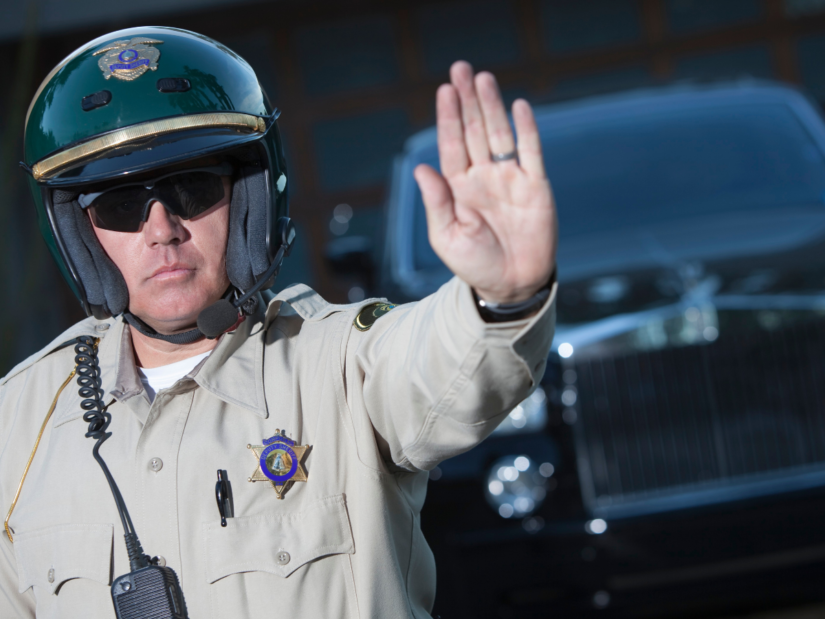
November 1, 2024
In Texas, knowing your rights during a police investigation can be the difference between protecting yourself or unknowingly giving up important legal protections. Police officers have authority, but it has limits. Unfortunately, many Texans don’t fully understand their rights during routine traffic stops, home searches, or street encounters with police.
This article breaks down your rights and provides practical advice to help you stay informed and protected.
What Are Your Rights During a Police Investigation in Texas?
Whether you’re stopped on the street, pulled over in your car, or approached on private property, understanding your constitutional rights is important. These rights make sure you aren’t unlawfully detained or searched, and they protect you from self-incrimination.
Your Right to Remain Silent
The Fifth Amendment of the U.S. Constitution guarantees your right to remain silent during a police investigation. In Texas, you are not required to answer police questions that could incriminate you. This includes not providing information during traffic stops, police questioning, or street encounters, unless legally required to provide identification.
According to the Texas Criminal Defense Lawyers Association (TCDLA), invoking your right to remain silent is one of the most critical steps when dealing with law enforcement. Clearly stating, “I am exercising my right to remain silent,” is the best way to protect yourself.
Right to Legal Counsel

You have the right to request legal counsel if you are being detained or questioned by law enforcement in Texas. According to Texas law, if you request an attorney, all police questioning must stop until your lawyer is present.
Protection Against Unlawful Search and Seizure
In Texas, the Fourth Amendment protects you from unlawful searches and seizures. Police need a valid search warrant or probable cause to search your vehicle, home, or personal belongings. Without these, any evidence gathered may be inadmissible in court.
Texas Stop and Identify Law
Many Texans ask, “Is Texas a stop and ID state in 2024?” The simple answer is no—Texas is not a stop and ID state. This means you are generally not required to provide identification to police unless you are driving or lawfully detained.
In Texas, under the stop and identify law, police can ask for your name during an encounter, but unless they have reasonable suspicion or probable cause of criminal activity, you are not obligated to provide it. If you’re not under arrest or detained, you can respectfully decline to provide identification and ask if you’re free to leave.
When You Must Show ID
If you’re driving, Texas law requires you to present your driver’s license, registration, and proof of insurance when asked by a law enforcement officer. Refusing to provide these can result in fines or other legal penalties.
Traffic Stops: What Are Your Rights When Pulled Over?

Traffic stops are among the most common types of police encounters in Texas. According to the Texas Department of Public Safety (DPS), over 8.5 million traffic stops occur annually in the state. It’s important to know your rights in these situations.
How Long Can a Police Officer Detain You on a Traffic Stop in Texas?
In Texas, the law does not specify a maximum time for a traffic stop. However, officers can only detain you for a “reasonable amount of time” to resolve the reason for the stop. In the 2015 case Rodriguez v. United States, the U.S. Supreme Court ruled that police cannot extend a traffic stop beyond the time needed to handle the violation unless they have additional reasonable suspicion of criminal activity.
Can Police Run Your Plates for No Reason in Texas?
Yes, police officers can legally run your license plates without needing a specific reason. This action is considered part of their law enforcement duties and allows them to check for expired registration, warrants, or stolen vehicles.
According to the Texas Municipal Police Association, this practice helps maintain public safety by flagging stolen cars or individuals with outstanding warrants.
What Are My Rights When Pulled Over in Texas?
When pulled over, remain calm, polite, and cooperative. You have the right to ask why you were stopped. If the officer asks to search your vehicle, you can lawfully refuse unless they have probable cause or a warrant.
Under the Fourth Amendment of the U.S. Constitution, police cannot conduct a search without probable cause or your consent, unless certain exceptions apply, such as exigent circumstances. If they proceed without a valid reason, any evidence they gather can be challenged in court.
Police Searches: Your Rights on Private Property

Can Police Enter Private Property Without Permission in Texas?
In most cases, police cannot enter your private property without either your permission or a valid search warrant. However, Texas law does allow for exceptions, such as urgent circumstances (e.g., if someone is in immediate danger) or when police are in “hot pursuit” of a suspect.
What to Do if Your Rights Are Violated
If you believe your rights were violated during a police investigation or traffic stop, knowing how to respond is important.

Document the Incident
Always document everything that happens during a police encounter. Write down officers’ names, badge numbers, and other key details. Texas law allows you to legally record interactions with police, as long as you do not interfere with their duties.
Filing a Complaint
If you feel that your rights were violated, you can file a formal complaint with the Texas Department of Public Safety or the local police department. Complaints are investigated internally, and many have led to disciplinary actions against officers.
Consult Legal Counsel
If you believe your rights were violated, you should consult with an experienced criminal defense attorney. An attorney can help document the incident, advise you on your legal options, and potentially get charges dismissed if your rights were infringed upon.
Conclusion
Knowing your rights during a police investigation in Texas can protect you from unlawful detainment, searches, and questioning. Whether you’re stopped in your car or dealing with a police officer at your home, understanding how to invoke your rights can help you avoid legal trouble.
If you believe your rights have been violated or you’re facing criminal charges, contact The Napier Law Firm for a free consultation. Our team of experienced attorneys will make sure that your rights are protected every step of the way.